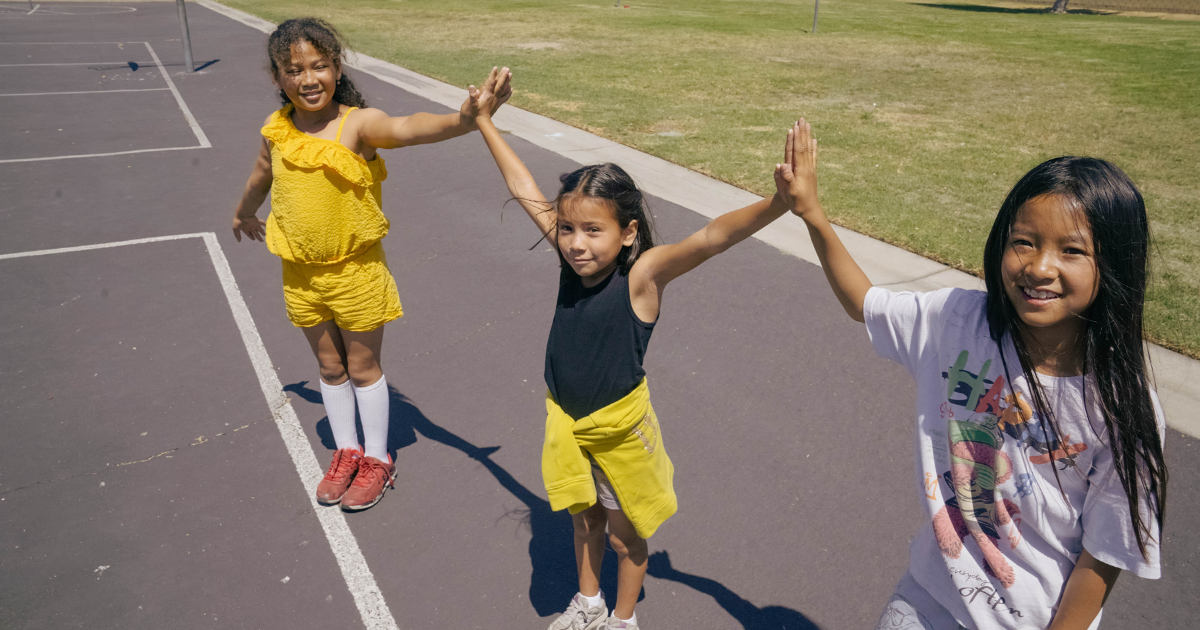
By Brian LeTendre, Senior Director of Content Strategy & Development at Elevo
The relationship a student has with school has a profound impact on their success in school. Decades of research have shown that creating a school climate in which students feel safe and connected has positive impacts on student attendance, behavior, learning, and more (Thapa et al., 2013). Expanded Learning programs and providers can and should be a key component of every district’s strategy to establish a positive school climate for all students, which is reflected in ASES, ELO-P, and 21st CCLC requirements, as well as the Quality Standards for Expanded Learning Programs.
Defining School Climate
While school climate can be broadly defined and is sometimes thought of as a “you know it when you see it” concept, the National School Climate Council has developed a definition of school climate that includes the following elements:
- Norms, values and expectations that support people feeling socially, emotionally and physically safe.
- People being engaged and respected.
- Students, families, and educators working together to develop, live and contribute to a shared school vision.
- Educators modeling and nurturing attitudes that emphasize the benefits and satisfaction gained from learning.
- Each person contributing to the operations of the school and the care of the physical environment.
How You Start Is Important
The beginning of the school year is a stressful time for many students, and a critical time for building positive connections. Elevo’s Expanded Learning program is designed to build on the efforts of educators and administrators during the school day, and our approach to the beginning of the year is an example of that. We intentionally start every year with the Community unit of our thematic enrichment curriculum. As the first 6 weeks of the program, this unit allows Coaches and students to intentionally cultivate a sense of community, establish predictable routines, develop trusting relationships, and create a supportive environment.
Starting in week one, students are encouraged to take ownership in establishing their program’s expectations alongside their Elevo coaches by creating their Team Agreement, one of Elevo’s 5 Core Practices. Over the course of the unit, students are introduced to the rest of the Core Practices as well, from Warm Welcomes to Optimistic Closures. These are trauma-informed practices that establish a safe, supportive environment at each program.
Throughout the Community unit, students explore the CASEL competencies by engaging in various culturally affirming, arts-based, and STEM activities that promote 21st Century Skills. Students build their sense of belonging by reflecting on their identity, interests, feelings, and values, and by building appreciation and connections to their peers. This allows students to explore how they respond to conflict and challenges, while developing their metacognition. By the end of the unit, students will have a shared sense of pride in their
Elevo Community, which they have helped create and shape.
Seeing Positive Impact During the School Day
The effects of creating a strong sense of community in after school are evident during the school day. For students that start the school year off positively, having a positive after school experience can strengthen their relationship with school. For those students who struggle during the school day, that after school program can provide a place for them to make connections, feel supported, and bring that positive momentum back to the school with them.
Recently, one of our district partners shared a story of one such student:
“I am the 6th grade counselor at TMS, and I wanted to let you know some of the wonderful things I have heard about the afterschool program this week. I had a SART meeting for a student with depression. Recently her attendance has improved and her parent stated it was due to the ELO-P program. She had struggled to make friends but found some in the program and now she wants to come to school to see them. I had another meeting with a parent whose student struggles with anxiety. The parent was thrilled at the connections the coaches have built with her daughter. She has been completing homework in the program and we can see the improvement reflected in her grades! Thank you for the wonderful program.”
– Murrieta Valley Unified
References
Thapa, A., Cohen, J., Guffey, S., & Higgins-D’Alessandro, A. (2013). A review of school climate research. Journal of School Psychology, 49(1), 18-23.
National School Climate Center. What is School Climate and Why is it Important? https://schoolclimate.org/school-climate/
California Afterschool Network, & California Department of Education After School Division (2014). The Quality Standards for Expanded Learning in California. California Afterschool Network. https://www.afterschoolnetwork.org/post/quality-standards-expanded-learning-california




